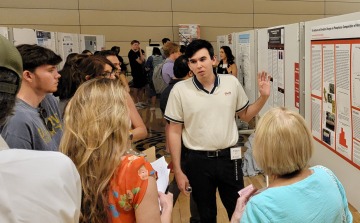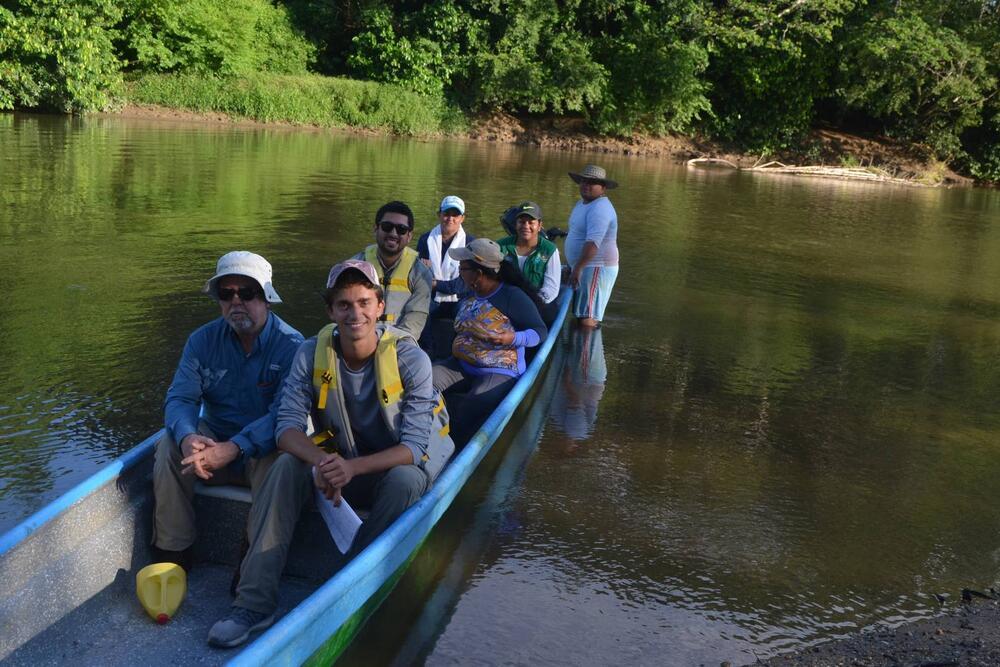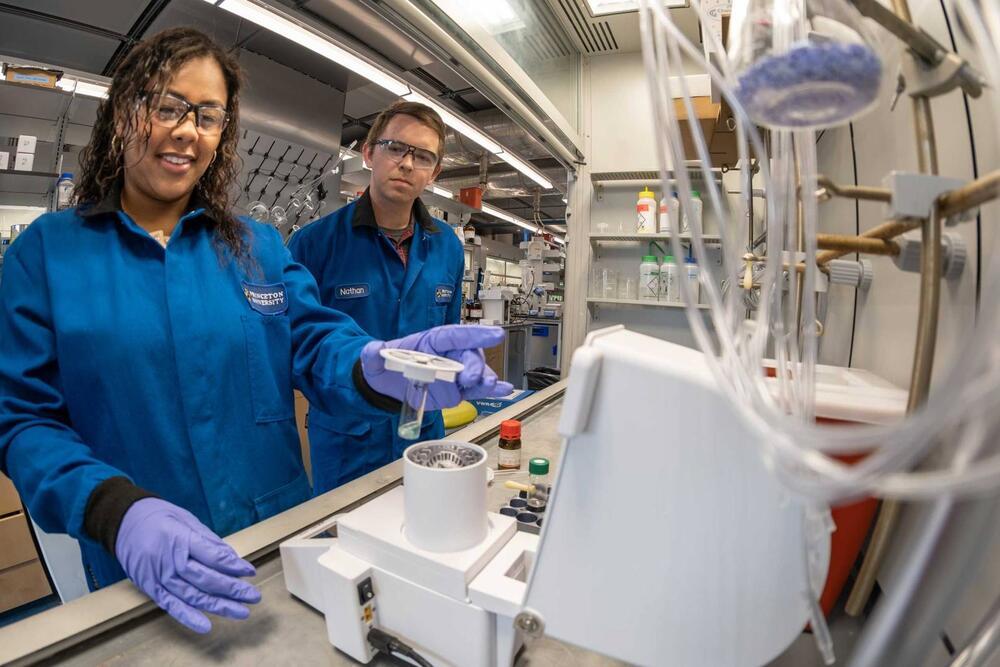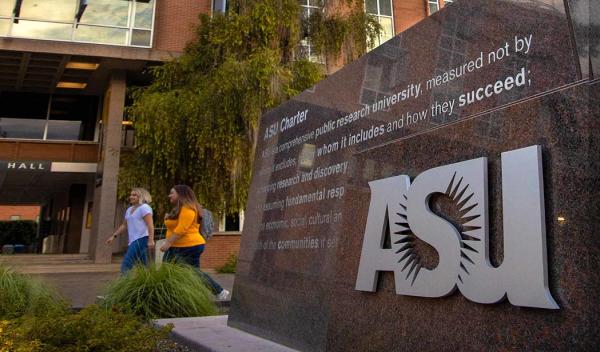
Dissertation vs Thesis vs Capstone Project What’s the difference?
By: Derek Jansen (MBA) | Expert Reviewed By: Dr. Eunice Rautenbach | October 2020
At Grad Coach, we receive questions about dissertation and thesis writing on a daily basis – everything from how to find a good research topic to which research methods to use and how to analyse the data.
One of the most common questions we receive is “what’s the difference between a dissertation and thesis?” . If you look around online, you’ll find a lot of confusing and often contrasting answers. In this post we’ll clear it up, once and for all…
Need a helping hand?
Dissertation vs Thesis: Showdown Time
Before comparing dissertations to theses, it’s useful to first understand what both of these are and what they have in common .
Dissertations and theses are both formal academic research projects . In other words, they’re academic projects that involve you undertaking research in a structured, systematic way. The research process typically involves the following steps :
- Asking a well-articulated and meaningful research question (or questions).
- Assessing what other researchers have said in relation to that question (this is usually called a literature review – you can learn more about that up here).
- Undertaking your own research using a clearly justified methodology – this often involves some sort of fieldwork such as interviews or surveys – and lastly,
- Deriving an answer to your research question based on your analysis.
In other words, theses and dissertations are both formal, structured research projects that involve using a clearly articulated methodology to draw out insights and answers to your research questions . So, in this respect, they are, for the most part, the same thing.
But, how are they different then?
Well, the key difference between a dissertation and a thesis is, for the most part, the level of study – in other words, undergrad, master or PhD. By extension, this also means that the complexity and rigorousness of the research differs between dissertations and theses.

So, which is which?
This is where it gets a bit confusing. The meaning of dissertation or thesis varies depending on the country or region of study. For example, in the UK, a dissertation is generally a research project that’s completed at the end of a Masters-level degree, whereas a thesis is completed for a Doctoral-level degree.
Conversely, the terminology is flipped around in the US (and some other countries). In other words, a thesis is completed for a Masters-level degree, while a dissertation is completed for PhD (or any other doctoral-level degree).
Simply put, a dissertation and a thesis are essentially the same thing, but at different levels of study . The exact terminology varies from country to country, and sometimes it even varies between universities in the same country. Some universities will also refer to this type of project as a capstone project . In addition, some universities will also require an oral exam or viva voce , especially for doctoral-level projects.
Given that there are more than 25,000 universities scattered across the globe, all of this terminological complexity can cause some confusion. To be safe, make sure that you thoroughly read the brief provided by your university for your dissertation or thesis, and if possible, visit the university library to have a look at past students’ projects . This will help you get a feel for your institution’s norms and spot any nuances in terms of their specific requirements so that you can give them exactly what they want.

Let’s recap
Dissertations and theses are both formal academic research projects . The main difference is the level of study – undergrad, Masters or PhD. Terminology tends to vary from country to country, and even within countries.
Need help with your research project?
Get in touch with a friendly Grad Coach to discuss how we can help you fast-track your dissertation or thesis today. Book a free, no-obligation consultation here.

Psst... there’s more!
This post was based on one of our popular Research Bootcamps . If you're working on a research project, you'll definitely want to check this out ...
You Might Also Like:

GRADCOACH youtube and materials are awesome for new researchers. Keep posting such materials so that many new researchers can benefit form them.
Am happy to be part of the family hope you will help me with more information through my email
Trackbacks/Pingbacks
- What Is Research Methodology? Simple Definition (With Examples) - Grad Coach - […] you’ve started working on your first piece of formal research – be it a dissertation, thesis or research project…
Submit a Comment Cancel reply
Your email address will not be published. Required fields are marked *
Save my name, email, and website in this browser for the next time I comment.
- Print Friendly

Home » Education » What is the Difference Between Capstone and Thesis
What is the Difference Between Capstone and Thesis
The main difference between capstone and thesis is that capstone involves using existing knowledge to solve a problem in a particular field of study, whereas thesis is more scholarly in nature and contribute new knowledge to a particular field of study
Both capstone and thesis serve as the final projects of an academic course. They require a long-term commitment as students will have to spend a lot of time on their research. When done successfully, they can serve as the basis of a student’s professional portfolio.
Key Areas Covered
1. What is a Capstone – Definition, Features 2. What is a Thesis – Definition, Features 3. Difference Between Capstone and Thesis – Comparison of Key Differences

What is a Capstone
A capstone is a multilayered project that serves as a culminating academic experience for students, typically at the end of an academic program. Moreover, a capstone project may take many forms. In such projects, students select a topic or social problem that interests them, conduct research on that subject, record the results or findings, create a final product, showcasing their conclusions, as well as their learning acquisition. The final product can take many forms, such as papers, multimedia presentations, and short films. Students may also have to do an oral presentation on the project in front of a panel of teachers and experts who will evaluate the quality of the project.

Capstone projects encourage students to think critically and face challenges. They can also develop skills such as research skills, media literacy, teamwork, planning, goal setting, oral communication, public speaking, and self-sufficiency. These skills will help students in their careers as well as adult life. Furthermore, these projects tend to be interdisciplinary, i.e., students have to use various skills and research issues across many different domains of knowledge.
What is a Thesis
A thesis or dissertation is a long research paper that typically serves as the final project for a university degree. Submitting a thesis is generally required for completing undergraduate honours, masters , and doctoral degrees . The theses are very long and may contain hundreds of pages. They are also scholarly in nature and allows students to contribute valuable research in their field of study.

Moreover, a major part of a thesis work involves research and writing. It generally has advanced research design and analysis. When writing a thesis, the students will have to prove or disapprove a hypothesis , and their conclusions have to be backed by extensive research and an insightful, learned description of how they got to that conclusion. In some degree programs, students also have to perform an oral defence of the thesis paper in front of a panel of experts.
Parts of a Thesis
These are the components you will usually find in a thesis paper.
- Title Page
- Abstract
- Table of Contents
- List of Figures
- List of Tables
- Introduction
- Methods
- Discussion
- Conclusions
- Recommendations
- Acknowledgements
- References
Difference Between Capstone and Thesis
A capstone is a multilayered project that serves as a culminating academic experience for students, typically at the end of an academic program, whereas a thesis is a long research paper that typically serves as the final project for a university degree.
A thesis is more scholarly in nature than a capstone project.
Level of Education
Capstone projects can be done by high school students, college students, etc., whereas theses are required in higher levels of academia, usually in undergraduate honours degrees, masters, or doctorate levels.
Final Product
In a capstone project, the final product can take many forms, for example, paper, multimedia presentation, short film, etc. However, in a thesis, the final product is always a paper.
A capstone is a multilayered project that serves as a culminating academic experience for students, typically at the end of an academic program, whereas a thesis is a long research paper that typically serves as the final project for a university degree. Moreover, a thesis is more scholarly in nature than a capstone project. Therefore, this is is the main difference between capstone and thesis.
1. Stute, Martin. “ How to Write Your Thesis .” How to Write a Thesis. 2. “ Capstone Project Definition .” The Glossary of Education Reform, 23 Mar. 2016.
Image Courtesy:
1. “910524” (CC0) via Pxhere 2. “thesis” By Vectors Point, PK (CC0) via TheNounProject
About the Author: Hasa
Hasanthi is a seasoned content writer and editor with over 8 years of experience. Armed with a BA degree in English and a knack for digital marketing, she explores her passions for literature, history, culture, and food through her engaging and informative writing.
You May Also Like These
Leave a reply cancel reply.
Academic Resources
- Academic Calendar
- Academic Catalog
- Academic Success
- BlueM@il (Email)
- Campus Connect
- DePaul Central
- Desire2Learn (D2L)
Campus Resources
- Campus Security
- Campus Maps
University Resources
- Technology Help Desk
Information For
- Alumni & Friends
- Current Students
- Faculty & Staff
- Honors Curriculum
- Transfer Honors Curriculum
- Study Abroad
Senior Thesis & Capstone
- Honors Research Conference
- Our Mission
- Student Life
- Faculty and Staff
- Apply Online
- Request Info
- Visit Campus
Honors Program > Academics > Senior Thesis & Capstone
Capping Off Your College Career
Honors seniors conclude their studies with a final scholarly or creative project of their own design, completed either through an Honors Senior Capstone course or a senior thesis. Students apply the research skills they have honed and draw from the interdisciplinary knowledge they have gained to produce a work of original scholarship that marks their transition from student to scholar.
Honors Senior Thesis
Honors capstone course.
Students who choose not to complete a senior thesis project instead conclude their Honors education with an interdisciplinary capstone seminar. The capstone seminar provides students with the opportunity to explore one final interdisciplinary topic and to draw upon what they have learned throughout their undergraduate career to produce a substantial research project.

Senior Capstone/Thesis

The Senior Capstone in Chemistry and Biochemistry is required for the Bachelor of Science degree, and is designed to provide the student with laboratory research experience. Participation in research helps in choosing careers, develops mentoring relationships with faculty and other members of research groups, and is the best way to learn science. Students in the Honors College can use the senior capstone thesis toward both the Chemistry and Biochemistry degree and for the required Honors Thesis. A minimum of two semesters of laboratory work (including a minimum of 6 units total of CHEM/BIOC 498(h) credit is required, which begins during a student’s penultimate semester. It is usually comprised of focused research work, followed by a semester of writing a thesis. Students who choose not to complete the Senior Capstone in Biochemistry can still obtain a degree in Biochemistry, however they must switch to a Bachelor of Arts in Biochemistry (talk to your academic advisor).
TO ENROLL FOR SENIOR CAPSTONE/THESIS CREDIT (CHEM/BIOC 498/498H) STUDENTS MUST:
1. Work with the faculty research advisor to write a Senior Capstone/Thesis Prospectus to include with the CBC Capstone Thesis. Only general faculty are available to be research faculty advisors, not post-docs, graduate or undergraduate students. However they can be listed as supervisors on the thesis form.
- a statement of the problem
- background information
- methods to be used
- expected outcomes
2. Biochemistry and Chemistry students will be enrolled for credit by Olivia Mendoza, Undergraduate Senior Program Coordinator, after obtaining signatures from the research faculty mentor and your faculty advisor.
Note: Biochemistry majors wanting to work in laboratories of faculty outside of Chemistry & Biochemistry must obtain permission from the department, contact Olivia Mendoza at [email protected] . The process of obtaining approval of the Senior Capstone/Thesis must be completed prior to the start of the first semester of research. This would normally be in the spring semester of the junior year.
It is the policy of the Department of Chemistry & Biochemistry that students enrolled in an Individual course such as Senior Thesis/Capstone, Directed Research, Independent Student and Preceptor units cannot be paid for the same hours as lab work. Therefore, academic credit can be awarded only for faculty-approved academic work as defined by department policy, whereas, paid laboratory work must follow university or programmatic policies for student employment.
3. There are no exams for CHEM/BIOC498(H). At the end of your first semester, your research mentor will assign you a grade based on the agreed upon criteria in the registration form. After one semester of research, students must submit a revised Prospectus to their Biochemistry Faculty Advisor.
4. Before your second semester of Capstone/Thesis begins, touch base with your research mentor to clarify what you should be focusing on for this final semester. It is expected that the research faculty mentor will work with the student as the student prepares and writes the thesis.
5. At the start of your second semester , complete and submit the Registration Form for Capstone/Thesis (the most current form is available on the Undergraduate Studies Forms page ) – Second Semester. Use the form to help you plan out your writing tasks for this semester. Writing should be an ongoing process during the second semester, so that there is ample time to work on the thesis drafts with input from the research faculty mentor.
6. At least 2 weeks prior to the completion of classes for the second semester, the student must submit a thesis in scientific paper format for approval by the research mentor and by the Biochemistry faculty advisor. The Capstone/Thesis is not only the documentation of your research project, but also a scientific writing assignment. Before submission of the senior Capstone/Thesis, the research faculty mentor must sign the title page (with date), signifying approval of the thesis for both scientific content, scope of the Capstone/Thesis, and writing style. The student should then bring the Capstone/Thesis to their assigned BIOC faculty advisor for their approval and signature. The BIOC faculty advisor will only approve the thesis after they have read the document. Once approved by the BIOC faculty advisor the thesis is turned in to the senior program coordinator in the CBC Advising office by email at [email protected] .
7. Students graduating in the spring and summer semesters are required to present a poster in spring, of their senior Capstone/Thesis (includes Honors Thesis) at the Annual CBC Poster Fair Contest , a special presentation for undergraduate research and senior thesis presentations sponsored by the Department of Chemistry and Biochemistry. Fall Graduates are required to present at a fall poster fair, unless specified.
8. At the end of the semester, honors students must submit their Senior Honors Thesis to the Honors College by the last day of classes. The deadline to submit your thesis is usually one week before finals. Research advisors/mentors will assign grades after the completed Capstone/Thesis is submitted.
If Interested in This Program, Contact:
Olivia mendoza, phone: (520) 621-3868, email: o [email protected].
The College
- Design Your Education
- Complete Your Degree
- Culminating Experiences

Best Practices for Capstones
See the College Curriculum Council's report on best practices for capstone projects.
Many Brown graduates spend a portion of their senior year hard at work on an independent project of their own design. A senior capstone project enables students to synthesize knowledge gained in the (inter)discipline(s), often by allowing students to apply what they have learned.
A senior capstone experience can be any kind of project that draws on what you have learned in your concentration. It is usually completed in close consultation with an advisor. An honors thesis or independent study is one obvious type of capstone. A performance or art opening is another. And, depending on one's goals, a focused internship or other kind of educational work experience could be another, especially if carried out in consultation with a faculty mentor. Many concentrations at Brown, particularly interdisciplinary and joint concentrations, require a senior capstone experience. Even if such a culminating project is not required by a student's concentration, we encourage all juniors to include such a project in their senior-year planning.
Brown offers several resources to help rising seniors think carefully about possible capstone projects. Faculty members and concentration advisors represent a deep pool of intellectual expertise and can help with the planning and execution. Dean Lindsay Garcia , the Assistant Dean for Junior and Senior Studies, is also available to discuss capstone endeavors or other issues pertaining to your final year at Brown.
Seniors who wish to share their capstone projects with the larger campus community should consider applying to the Theories in Action exchange held each spring.
Examples of Departmental Approaches to Capstones
Environmental studies, modern culture and media.

Online Students
For All Online Programs
International Students
On Campus, need or have Visa
Campus Students
For All Campus Programs
What is a Capstone Project in College?

The capstone project in college is the apogee, or completion marker, of a student's coursework leading to the culmination of their program with a degree in their chosen field of study. The original definition of a capstone focuses on the actual stone placed at the top of a wall or building, marking the successful completion of the structure. It's a significant and celebrated piece of architecture, considered to be the most important of an entire construction project.
"(Capstone projects are) the apex of all a student's work done throughout their college career," said Dr. Jeff Czarnec , a social sciences adjunct online and on-campus at Southern New Hampshire University (SNHU). Retired after 23 years in law enforcement, Czarnec served as an associate dean of criminal justice and social sciences at SNHU for nearly a decade. He now leverages his extensive background to teach social sciences, enriching the academic experience with his practical insights.
When entering a capstone course, there's an expectation that you have all the necessary skills and knowledge to be successful.

You have the opportunity to pick a research topic that is of interest to you and run with it. "After having to write research papers in all of their courses prior to (the capstone), the task is not one to dread, but to enjoy. It is their time to shine as students and to enjoy the journey," MacCarty said.
A capstone course is more than a potential degree requirement. It can serve as an opportunity to demonstrate knowledge mastery and creative thinking, which may help you stand out to potential employers.
What is Involved in a Capstone Project?

Each university, program and instructor may have different requirements — or models — for a capstone project. According to Czarnec, a general design might first include selecting a topic of interest that the instructor will approve.
Czarnec said that, depending on the program, a capstone may include anything from a video presentation or an architectural model to an art exhibit or short film; however, it almost always includes a paper demonstrating an introduction, theory, evaluation, research and individual issues relevant to the proposal.
"Students are expected to be ready to enter the world as professionals in their field upon completion of the capstone course," said MacCarty.
The time it takes to complete a capstone project usually depends on the course's length. If you're in an undergraduate online program at SNHU, for instance, your capstone course would take eight weeks to complete, Czarnec said.
Capstone courses are research-based, and you can choose your topic early on, allowing you more freedom to conduct research independently. Capstone topics usually align with a program's specific disciplines, too.
For example, in the social sciences realm, "our focus is on human behavior and cognition, which may be different from a capstone course in business or STEM," MacCarty said.
Find Your Program
Types of capstones.
There are many types of capstone projects that you could consider, and they vary from learner to learner, Czarnec said. "Some will investigate issues or phenomenon that they are familiar with either professionally, personally or courtesy of a discipline-related source, such (as) a police or human services agency," he said.
In a nutshell, a rough outline of a capstone, according to Czarnec, may look something like this:
- Select a topic and have it approved by the instructor
- Evaluate relevance to the proposal
- Perform necessary research
- Present results in the agreed-upon fashion
Czarnec said that if you're looking for a capstone topic, you may consider focusing on an area you're passionate about or you could also try to ask you instructor for some assistance. For example, Czarnec said that he can act as a guide, mentor, editor and research resource for his students to help them focus and narrow their search for a capstone topic.
Are Capstone Projects Difficult?
"Not necessarily," said Czarnec. "It does force you to be efficient and very specific to topic. No fluff. Straight forward. Razor sharp."
The capstone is more of an opportunity to catch your breath, he said, and to retrace and pull up what you have learned in a more stress-free environment .
"It helps validate students as learners," Czarnec said.
Depending on the major and course requirements, there may be opportunities to connect with outside contacts, not only to assist with the capstone project research and problem statement but also to provide a networking community .
"Not every research project is, nor should they be, the same," Czarnec said. "Everyone has a different approach."
What is the Difference Between a Thesis and a Capstone Project?
A capstone is similar to a thesis in that the starting point involves the strengths needed for a thesis or dissertation work. For example, you may need to consider the skeletal structure of research and form your theory, hypothesis and problem statement.
"While a capstone is certainly a scholarly piece of work and does share some aspects of a thesis, the time and detail that is required of a master's thesis is greater," MacCarty said.
A capstone paper may be 25 pages, whereas a thesis could be 100 or more. If you choose to further your education beyond a bachelor's degree, the capstone project could be an invaluable tool in preparing for a graduate thesis.
Capstone Projects are About Your Success
Capstones of all programs are leading you to the end game, Czarnec said. The goal is to develop you into a well-rounded thinker who can pull their work together in a coherent, articulate, well-organized fashion while considering the demands of the profession or vocation you're interested in.
The focus and intent of a capstone should be to create an effective device to assess and measure all that you've learned throughout your program in an aggregate fashion so you can demonstrate your life-long vocational skills in a nice, neat package.
"My goal is for students to leave the program confident about their skills and abilities," said Czarnec.
MacCarty said that capstone courses should be structured to support your success in fulfilling program requirements and allow you the opportunity to showcase your academic abilities and skills gained throughout your degree program.
A degree can change your life. Choose your program from 200+ SNHU degrees that can take you where you want to go.
Laurie Smith '14 is a writer, editor and communications specialist. Connect with her on LinkedIn .
Explore more content like this article

What is an MEd Degree?

What is a Bachelor of Arts Degree?

What are the 4 Types of College Degrees?
About southern new hampshire university.

SNHU is a nonprofit, accredited university with a mission to make high-quality education more accessible and affordable for everyone.
Founded in 1932, and online since 1995, we’ve helped countless students reach their goals with flexible, career-focused programs . Our 300-acre campus in Manchester, NH is home to over 3,000 students, and we serve over 135,000 students online. Visit our about SNHU page to learn more about our mission, accreditations, leadership team, national recognitions and awards.
Senior Capstones, Honors, and Synthesis Projects
Main navigation.
As you plan for senior year, you may wish to work on an independent project to solidify the academic knowledge and other educational experiences acquired during your time at Stanford. Capstone Projects and Honors Theses can be a rewarding way to apply what you've learned and finish your Stanford career with a flourish.
Capstone Projects
All undergraduates matriculating as first year students in 2021-22 or later, and graduating in 2024-25 or later must complete a senior capstone requirement, as defined by each department. The capstone project provides students with considerable flexibility and independence.
A capstone project may allow for deeper engagement with a given major, in the form of an Honors Thesis , a senior paper or project, or an arts performance or exhibition. Alternatively, some capstone projects (often referred to as Senior Synthesis Projects ) are more interdisciplinary in nature or involve community partnerships.
You can find support for capstone projects from your academic departments or other campus programs such as the Haas Center for Public Service and VPUE Research Grants .
Honors Theses
Usually, by “honors”, Stanford means departmental honors. For most majors (but not quite all), honors means a research honors thesis: a substantial project where you identify your own research topic, carry out the research, and write up your results. Arts programs provide additional paths for pursuing honors through performances or exhibitions. Just about every major offers an honors track, and in addition, several programs allow students from any major to participate in an interdisciplinary honors program (see below for the current list).
Pursuing an honors thesis requires a high degree of initiative and dedication. It also requires significant amounts of time and energy. It can be one of the most challenging, and rewarding, experiences of your academic career. Your Academic Advisors are always happy to discuss your thoughts and considerations about pursuing honors with you .
You can start discussing the idea of a thesis with people as early as your first year at Stanford (though most people who pursue honors don’t find their ideas until sophomore or junior year), and as you move through classes up through your junior year, think about what types of questions you might be interested in answering with a thesis. Your faculty are the best people to consult when thinking about honors, as having a mentor who can guide you in the project is essential.
Honors programs generally require an application, a minimum GPA, and some selected classes, as well as the thesis or capstone project. Most application deadlines are in the Winter Quarter of your junior year, but may range from sophomore spring to senior fall. Check the program website for the basics, look out for information sessions, and arrange to meet with program leaders for more information.
The top honors theses are recognized annually in an awards ceremony. You can find links to Stanford News stories of recent ceremonies (and get a sense of the range of possibilities) on the Medals Ceremony website.
For Departmental Honors, visit the department site or the majors site to see if your department offers an honors program. Majors Site
The current Interdisciplinary Honors programs are:
- Comparative Studies in Race and Ethnicity
- Democracy, Development, and the Rule of Law (CDDRL)
- Ethics in Society
- Feminist, Gender, and Sexuality Studies
- International Security Studies (CISAC)
- Science, Technology, and Society
Here for the "other" Honors?
Please note that Stanford does not use Latin honors (summa cum laude, magna cum laude, cum laude), but does award Distinction (based on GPA) to graduating seniors. In addition, Stanford has a chapter of Phi Beta Kappa, a nationwide honor society that recognizes students for the excellence and breadth of their undergraduate scholarly accomplishments, and Tau Beta Pi, the national Engineering Honors Society.
Awards and Graduation Honors Phi Beta Kappa Tau Beta Pi

Senior Synthesis Projects
At Stanford, we use the term "Senior Synthesis Project" to refer to a senior capstone project that does not readily fall within the category of a research or creative arts honors project. A senior synthesis project draws on your first three years of undergraduate experience, focusing on your academic work but perhaps also integrating your other interests. This is a capstone project that you envision will complement, build upon, or react to those recent experiences. It is distinct from the capstone required by your major.
Senior synthesis projects emphasize reflection on your academic experiences at Stanford and ideas that go beyond what is required in departmental course offerings, with strong faculty mentorship. Check with your program whether such a project is supported, and what process you should follow.
- How do I pursue an independent project?
- Planning for Departmental Honors
- Working with a Faculty Honors Advisor
- How to begin a research, arts, or senior synthesis project
Return to the Advising Student Handbook

What is a Senior Thesis?
A senior thesis is a paper which highly-motivated senior undergraduates may write to present the results of a major, independent research or creative project. Unlike most term projects, papers, and lab reports written in undergraduate courses, a senior thesis addresses questions or issues for which no known or generally accepted answers exist.
The Senior Thesis Program allows you to explore your aptitude for research within a more extended and individualized framework than that generally afforded by courses. It deepens your participation in the University’s community of scholars through your close contact with your thesis director and committee members, other interested faculty, graduate and postdoctoral students, and fellow undergraduate researchers. As the most widely recognized and respected hallmark of undergraduate distinction, a senior thesis demonstrates to graduate schools, fellowship committees, and employers your intellectual achievement and sophistication as well as your initiative and self discipline. As the capstone of your undergraduate experience, a senior thesis provides you with the opportunity to draw upon everything you have learned in your college experience and make a significant contribution of your own.
What is a Degree with Distinction?
The term “Distinction” is included in a baccalaureate degree title when the recipient has conducted original research or creative work, written a senior thesis or produced a creative project and successfully defended the work before a committee of University faculty. The University of Delaware offers Degrees with Distinction (DWD) to students who successfully defend a Senior Thesis and who meet all of the requirements listed below. While it is possible to write a Senior Thesis without receiving Distinction, most students do graduate with Distinction. To graduate with Distinction is to graduate with a different kind of degree (e.g., a Bachelor of Arts in Anthropology with Distinction). The GPA requirement for a Degree with Distinction is a 3.0 cumulative GPA and a 3.5 in your major.
For Honors students who successfully create and defend a Senior Thesis, it is possible to graduate with an Honors Degree with Distinction (HDWD). The HDWD recognizes a student’s completion of the research requirements for the Degree with Distinction in addition to the successful completion of 30 credits in Honors courses through the degree program. The Honors Degree with Distinction is listed on each student’s University of Delaware official transcript. The GPA requirement for an Honors Degree with Distinction is a cumulative 3.4.
What is involved in writing a senior thesis?
- Research, write, and defend a thesis.
- Enroll in UNIV 401 & 402 (for specific course info, see handbook)
- Present at the Undergraduate Research Symposium (optional)
To learn more about how to apply to this program, as well as what goes into being a part of the Senior Thesis Program, please refer to the Senior Thesis Handbook or contact the URP office to set up an advisement appointment.
When is the deadline to apply?
- Students graduating in the spring need to apply by May 15th of their junior year.
- Students graduating in the fall or winter need to apply by November 15th of their junior year. [Note: education majors who will engage in student teaching during the spring semester of their senior year can write a thesis, and often start during the fall semester of of their junior year.]
What do I need to do to get started?
- Find a thesis director. (Oral confirmation from them is fine. Make sure this is a faculty member you know, and have had classes with.)
- Register for UNIV 401 — register for section 000 if you’re non-honors, section 080 if you’re honors.
- When registering for UNIV 401, be sure to choose your thesis director as your faculty instructor. If you don’t see them on the list, email Lauren Barsky, and she will add them.
- If you’re taking a course that conflicts with UNIV 401, register for the other course first. Then email Lauren Barsky telling her which section of 401 you want to take, the number of credits, and the name of your thesis director. Then Dr. Barsky will give you an override for UNIV 401.
- Find a second reader. (Again, oral confirmation is fine. If you’re not sure whom to ask, see if your thesis director can suggest someone.)
- Draft your senior thesis proposal, and email it to your director and second reader for their sign-off. Consult the Senior Thesis Handbook or the Thesis Application System for more information about what to include in your proposal.
- Once you revise your proposal to your director and second reader’s liking, upload it to the senior thesis system.
- Please read over the Senior Thesis Handbook. It’s not the most exciting read, but it will help explain many things that you might have questions about.
- Make an appointment with Dr. Barsky ( [email protected] ) or Adam Grimes ([email protected]). We need you fill out some paperwork, and ask about your course load for your senior year. The Honors Program will also need you to fill out a form for your Honors Degree with Distinction; the deadline for that form is also May 15.
180 South College Avenue Newark, DE 19716, USA [email protected]
Capping It Off: 7 Tips for the Senior Thesis
It's not too early to start thinking about this requirement. Here's our advice.
Many schools now have a "capstone" requirement: a longer writing project (sometimes called a "senior thesis") to be done in your final year. For some students this provides a golden opportunity to move to a more professional level of work in their chosen field. But for others, this is a dreaded, seemingly insurmountable obstacle standing between them and that fancy piece of paper with the university seal. In preparation for the fall, when many students will start working on this assignment, we offer you our best tips for staring down—and doing—the senior paper requirement:
1. Choose your adviser carefully. At many schools, the senior project is one of the first times that a faculty member is directly supervising your work. Be sure to pick a professor who is an expert in the specific field you're working on. The more you get into depth on an issue, the more you'll need to be guided by someone who knows a lot about the subject. Also, be sure to select someone you've taken a course or two with. You wouldn't want to find yourself, after the first week, with that sickening feeling that you're stuck for a whole semester—or a whole year—with someone you can't stand (and who probably can't stand you, either).
Extra Pointer. If you have a professor you really want to work with, you might consider changing to a topic in their area of expertise, rather than trying to get them to sponsor a project on some topic far outside their area of specialization.
2. Choose your topic even more carefully . Starting off with a bad topic is never going to have a good end. Consult carefully with your adviser before you put down your quarter.
5-Star Tip. Though, of course, every field and every paper is different, here are some signs of a good topic:
• Previous experience (yours): It's in an area in which you have already done some coursework. A senior thesis is not the time to start work in virgin territory.
• Doability: It's a topic that can be productively explored in the time you have. Don't fixate on a project that would take more than a lifetime to complete or a topic so narrow that you'll struggle to write even 10 pages on it.
• Answers a question (rather than surveying an area): The best thesis projects are ones that address a problem in a field and try to resolve it. Just talking about a topic you like usually nets a descriptive report, not an analytical paper—and reports come in on the lowest rung of the intellectual food chain.
• Intrinsic interest (to you): There's no point putting in long hours working on something that bores you to tears from Day One. (This is especially important to keep in mind if your professor is suggesting a topic to you, rather than you picking your own.)
3. Consider expanding a course paper. Many students think, wrongly, that in order to do a senior thesis they have to come up with a wholly new idea. But, in many cases, the most successful projects are expansions, reworkings, and further explorations of previous course papers. It's not too hard to see why: Often you've done significant work on the issue (and hence know what you're talking about), and in many cases the original topics were picked by professors themselves (hence likely to work).
4. Organize your face time. At the very beginning, work with your adviser to establish an appropriate schedule of visits. Make sure also that you have a meeting of minds about what the work will be at each meeting: Are you supposed to just get together and shoot the breeze? Are you supposed to have read some article each week or have written a draft of something? Are you supposed to have revised a previous piece? Professors differ widely in their expectations: Know up front what yours wants. And be sure to stick to the meeting schedule.
5-Star Tip. Depending on your project, there may be a number of scholars at your university who could give valuable input into your work, either by helping direct your research or your thinking on an issue. Check with your professor about whether it would be worthwhile to consult with additional faculty members, either within the department or in neighboring departments.
5. Divide your time in half . Spend about half your allotted time researching and the other half writing. Most students wind up spending about 90 percent of their time researching, which means that they don't actually start pulling together their ideas until it's already too late. Good senior theses require multiple drafts, with serious revisions being made based on the comments of your adviser. All of that takes time.
6. Don't assume that longer is better. Many, many students make the mistake of thinking that the whole game here is to come up with as many pages as possible. But most professors judge by quality, not quantity. Ask your adviser what the appropriate length of the project should be. Some professors are looking for a 70- to 80-page magnum opus, but others would rather see a strong journal article-sized length of 25 to 40 pages.
7. Play to the bitter end. At many schools, the capstone project is capped by an oral exam: A committee of three or four faculty members holds court and asks you questions for an hour or two about what you've shown. This can be the time during which the grade—or level of honors—is determined. Make sure you know what's going to be expected of you at the oral exam—and take the time to prepare for it (no matter how sick you are about the topic).
Bonus Tip. As your project draws to a close, it's especially important to assess where your work stands in the field and what original contribution it makes. This is something you will need to communicate both in the paper and your thesis defense (if you have one). The whole idea of the senior thesis—or capstone project—is for you to start being a player in the field. You can't really play unless you know your position and who else is playing.
© Copyright 2010 Professors' Guide LLC . All rights reserved.
Tags: education , students , academics
2024 Best Colleges

Search for your perfect fit with the U.S. News rankings of colleges and universities.
College Admissions: Get a Step Ahead!
Sign up to receive the latest updates from U.S. News & World Report and our trusted partners and sponsors. By clicking submit, you are agreeing to our Terms and Conditions & Privacy Policy .
Ask an Alum: Making the Most Out of College
You May Also Like
10 destination west coast college towns.
Cole Claybourn May 16, 2024

Scholarships for Lesser-Known Sports
Sarah Wood May 15, 2024

Should Students Submit Test Scores?
Sarah Wood May 13, 2024

Poll: Antisemitism a Problem on Campus
Lauren Camera May 13, 2024

Federal vs. Private Parent Student Loans
Erika Giovanetti May 9, 2024

14 Colleges With Great Food Options
Sarah Wood May 8, 2024

Colleges With Religious Affiliations
Anayat Durrani May 8, 2024

Protests Threaten Campus Graduations
Aneeta Mathur-Ashton May 6, 2024

Protesting on Campus: What to Know
Sarah Wood May 6, 2024

Lawmakers Ramp Up Response to Unrest
Aneeta Mathur-Ashton May 3, 2024


The Senior Thesis
From the outset of their time at Princeton, students are encouraged and challenged to develop their scholarly interests and to evolve as independent thinkers.
The culmination of this process is the senior thesis, which provides a unique opportunity for students to pursue original research and scholarship in a field of their choosing. At Princeton, every senior writes a thesis or, in the case of some engineering departments, undertakes a substantial independent project.
Integral to the senior thesis process is the opportunity to work one-on-one with a faculty member who guides the development of the project. Thesis writers and advisers agree that the most valuable outcome of the senior thesis is the chance for students to enhance skills that are the foundation of future success, including creativity, intellectual engagement, mental discipline and the ability to meet new challenges.
Many students develop projects from ideas sparked in the classes they’ve taken; others fashion their topics on the basis of long-standing personal passions. Most thesis writers encounter the intellectual twists and turns of any good research project, where the questions emerge as they proceed, often taking them in unexpected directions.
Planning for the senior thesis starts in earnest in the junior year, when students complete a significant research project known as the junior paper. Students who plan ahead can make good use of the University's considerable resources, such as receiving University funds to do research in the United States or abroad. Other students use summer internships as a launching pad for their thesis. For some science and engineering projects, students stay on campus the summer before their senior year to get a head start on lab work.
Writing a thesis encourages the self-confidence and high ambitions that come from mastering a difficult challenge. It fosters the development of specific skills and habits of mind that augur well for future success. No wonder generations of graduates look back on the senior thesis as the most valuable academic component of their Princeton experience.
Navigating Colombia’s Magdalena River, One Story At A Time
For his senior thesis, Jordan Salama, a Spanish and Portuguese major, produced a nonfiction book of travel writing about the people and places along Colombia’s main river, the Magdalena.

Embracing the Classics to Inform Policymaking for Public Education
For her senior thesis, Emma Treadwayconsiders how the basic tenets of Stoicism — a school of philosophy that dates from 300 BCE — can teach students to engage empathetically with the world and address inequities in the classroom.

Creating A Faster, Cheaper and Greener Chemical Reaction
One way to make drugs more affordable is to make them cheaper to produce. For her senior thesis research, Cassidy Humphreys, a chemistry major with a passion for medicine, took on the challenge of taking a century-old formula at the core of many modern medications — and improving it.

The Humanity of Improvisational Dance
Esin Yunusoglu investigated how humans move together and exist in a space — both on the dance floor and in real life — for the choreography she created as her senior thesis in dance, advised by Professor of Dance Susan Marshall.

From the Blog
The infamous senior thesis, revisiting wwii: my senior thesis, independent work in its full glory, advisers, independent work and beyond.

Senior capstones
Spanning everything from a thesis to a performance to an art exhibit, capstones are culminating experiences, usually in senior year, that bring together the full wealth of a learner’s experiences.
of ASU undergraduate degree recipients graduate with a capstone experience.
Participation in senior capstones improves skills in writing, oral communication, project management, and research.
Senior capstones are “transformative learning experience because of their positive contributions to desired learning outcomes,” and a “high-impact practice”.
Completion of senior capstones demonstrate student mastery and practical application of their chosen field of study.

A New American University
ASU is a comprehensive public research university, measured not by whom it excludes, but by whom it includes and how they succeed; advancing research and discovery of public value; and assuming fundamental responsibility for the economic, social, cultural and overall health of the communities it serves.
Table of Contents
What is a capstone project, importance of capstone project, purpose of capstone project, types of capstone projects, components of a capstone paper, capstone project vs thesis paper, capstone project: your gateway to professionalism.

A Capstone Project is where academia meets real-world impact. Crucial to any certification course or college degree educational program, it can take multiple structures but offers the same purpose. According to the International Journal of Higher Education, over 85% of universities and colleges worldwide now incorporate capstone projects into their curriculum, recognizing their unparalleled ability to bridge the gap between theoretical learning and practical application.
This project gives students a unique chance to perform independent research to develop innovative solutions to real-world problems. The scale and degree of this project can be tested, and it is also exceptionally fulfilling. The capstone project was last year's activity and is an essential part of helping students prepare for the world of professionalism.
For those wondering what is capstone, it is the final assignment that is to be completed by the students in the final year of their academic program. This project needs multiple scholarly exercises.
This project includes multiple varieties of structures, which means that it can be submitted in multiple forms, including a paper, execution, film, or multimedia presentation. This project is similar to any college thesis.
These projects are crafted to boost the students' critical thinking, oral communication, teamwork abilities, research, and problem-solving skills. In addition, this project helps students understand the process of connecting with local areas and identifying significant problems, issues, and ideas. Some tasks even include experiences outside of school, such as scientific observations and interviews.
Along with various other significant factors, a capstone project expands the austerity of academic studies during the final year.
- Capstone projects serve as a culmination of a student's academic journey. It requires them to draw upon knowledge and skills acquired throughout their studies. This integration of various disciplines provides a deeper understanding and appreciation of the interconnectedness of different subjects.
- A capstone project also increases students' individual inspiration. Its activities require creative work on fascinating themes, boosting students' inspiration.
- Through research, experimentation, and analysis, students develop essential problem-solving skills that employers across various industries highly seek.
- Capstone projects are an amazing approach to display learning capability. These kinds of projects help youngsters decide their preparation and capability to represent what they have learned from the project.
The major purposes behind incorporating capstone projects for the students include the following:
Overall Students Development
The meaning of capstone is a stone placed on the highest point of a structure to complete its construction. Hence, a capstone project refers to the advancement of students through their course. This project helps students improve their public speaking, teamwork, relational abilities, planning, and handling challenging problems. Students explore multiple ideas and implement their abilities while performing this project. It also helps students encounter learning techniques, such as intentions, research, etc.
Hones Skills that are Highly in Demand by Employers
The capstone project includes a disciplined, working society, planning to implement certain skills that are highly valued by employers and align well with the students' careers. While entering your career field or proceeding with how you study, how you implement and boost your skills is important. With each task, you polish your skills eventually. Moreover, you also develop better skills with the length and complexity of the assigned capstone project. Working on a capstone project includes selecting valid, relevant, and correct information, and these activities make it essential to boost your critical thinking skills. For instance, a capstone project helps you enhance your communication skills, which will be essential when you appear for an interview.
Provides Valuable Practical Experience
Grabbing your dream job as soon as possible can be challenging because several jobs need practical experience. This is why all capstone projects offer the students practical and theoretical experience. As employers are constantly searching for candidates who are well-versed in the practical application of the learned information, the capstone project proves extremely beneficial for the students' careers.
Prepare Yourself For the Outside World
The capstone project is structured to consolidate the student's previous years of learning with appropriate practical experience to help them build themselves into well-learned graduates. Students combine into small groups to develop creative answers for reasonable issues, all while learning the crucial experiences required in the responsibilities and demands of the real world.
Stand Competitive in the Job Market and Build an Attractive CV
When you undertake a capstone project, you represent to employers that you’re passionate about building essential skills and fundamental academic qualifications. Your dedication level is displayed when you invest effort and time in boosting your skills, gaining practical work experience, and working hard for the project. Moreover, by completing a capstone project, you stand out from other candidates when applying for a job.
Become a Data Science & Business Analytics Professional
- 11.5 M Expected New Jobs For Data Science And Analytics
- 28% Annual Job Growth By 2026
- Rs. 3L-11L Average Annual Salary
Professional Certificate Course in Data Analytics
- Program completion certificate from E&ICT Academy, IIT Kanpur
- Live masterclasses delivered by distinguished IIT Kanpur faculty
Here's what learners are saying regarding our programs:
Dhanya krishna
Thank you for introducing us to Python and Data Science techniques. I appreciate the effort. All instructors were very knowledgeable and patiently answered all questions.
The program is very well designed, and the live classes have personal attention in resolving doubts.
There are multiple capstone project examples. Each student is assigned a capstone project that best suits their skills and degree. Each project requires the students to implement the best process of doing things and to be creative. Every capstone project is highly research-intensive and requires students to present their skills and implement strategies that help them understand things better, along with developing critical and analytical skills.
Applied Research Capstone Project
In the applied research capstone projects, the students collaborate with international partners to conduct research that connects borders. This idea is to research subjects about the global context to explore things happening around the world. This project aims to bring solutions that can bring improvement to the world.
Creative Capstone Research Project
A creative capstone project is a project where students come up with excellent ideas to explore. The main motive behind this project is that students must be forced to think creatively and out of the box by making the best use of their critical thinking abilities. This project results in receiving useful insights from students in different fields, which improves the situation in regard to practical implications.
Action Research Capstone Project
In an action research capstone project, students promote continuous improvement and learning in a particular field. These projects are usually performed in education, psychology, medicine, and other fields. The main motive is to promote research and invent new methods through continuous research about new topics that may have crucial implications for the world.
Traditional Capstone Project
A traditional capstone project is like a regular capstone project in which students perform in-depth research in the field in which they are studying. The main goal is to conduct research that allows you to explore the things you are studying. Hence, selecting the right research question is important. You must select something that you have an interest in, and that will provide you with in-depth insights.
A capstone project is like any other project, with the primary goal of providing you with practice and experience in your particular field. It allows for a broader range of methodologies, potentially incorporating experiential learning, case studies, or simulations.
The main components of a capstone paper are as follows:
- Introduction
- Literature review
- Methodology
- Recommendations
Many people believe that a thesis paper and a capstone project are similar; however, they are not. The thesis focuses more on an exploration-based approach to evaluate the students' capacities. On the other hand, a capstone project evaluates the type and status of the student. One similarity between a thesis and a capstone project is that both need project execution, data collection, and outcome. In a thesis, students are required to add new learnings and thoughts. However, in a capstone project, students must collect data and provide outcomes regarding their benefit or as per their formal education.
Undertaking a capstone project requires students to gather information, conduct interviews, and examine subjects. Moreover, the whole procedure, from starting to work on your paper to completing it, raises the value of your resume and demonstrates that you hold the inspiration and diligence to complete all capstone projects.
Moreover, it helps the students boost their project management, oral communication, examination, and critical thinking abilities when working on their capstone project. If you want to upscale new-age technologies and essential industry skills, enrolling in these programs would be a better start:
- Professional Certificate Course In Data Analytics
- Professional Certificate Course In Generative AI And Machine Learning
Practice hands-on learning with Capstone Projects across various domains and build a profession you’ve always wanted!
1. What are the objectives of a Capstone Project?
The major objective of a capstone project is to produce original, high-quality work that contributes to the students' professional and academic development.
2. Who typically completes a Capstone Project?
A capstone project, which is a multi-faceted academic experience, is basically required for final-year students of an academic program to complete this project.
3. What disciplines require Capstone Projects?
Usually, Capstones are needed in programs, including practical learning and application of skills. These programs include business, computer, science, engineering, education, healthcare, and social sciences.
4. How long does a Capstone Project take to complete?
Completing a Capstone project might include a few beats or several months. Therefore, time management and project planning are essential to ensure that students can complete the project within the provided time frame.
5. How are Capstone Projects assessed?
The capstone project is assessed based on the capstone grading algorithm. An individual's grade is based on their team product development project performance (80%) and professional development (20%).
Data Science & Business Analytics Courses Duration and Fees
Data Science & Business Analytics programs typically range from a few weeks to several months, with fees varying based on program and institution.
Recommended Reads
The Rise of the Data-Driven Professional: 6 Non-Data Roles That Need Data Analytics Skills
Emerging Challenges that Create New Opportunities for Data Analytics Professionals
What is Data Analytics and its Future Scope in 2024
Data Analytics Basics: A Beginner’s Guide
Find Out How CompTIA Certifications Can Help IT Professionals to Retain the Edge?
Data Analytics with Python: Use Case Demo
Get Affiliated Certifications with Live Class programs
- PMP, PMI, PMBOK, CAPM, PgMP, PfMP, ACP, PBA, RMP, SP, and OPM3 are registered marks of the Project Management Institute, Inc.

IMAGES
VIDEO
COMMENTS
The thesis, also called a "dissertation," is a super-sized form of a research paper that serves as the final project before you complete your master's degree or doctoral degree. One of the primary differences between a thesis and a capstone is the scholarly nature of the thesis, which allows you to contribute valuable research to your ...
WHAT IS THE DIFFERENCE BETWEEN A THESIS AND A CAPSTONE? In many ways a thesis and a capstone are similar. They both follow a similar basic format and represent a scholarly effort of high quality. However, practice-based programs can use a capstone project to emphasize preparation of the student for professional practice. In contrast, a thesis is
Thesis projects typically involve independent research and analysis. Both capstone and thesis projects require a significant amount of time and effort. It is important to note that regardless of the project chosen, proper grammar and language use are essential to effectively communicate ideas and research findings.
Thesis and capstone projects synthesize your overall learning, taking the knowledge you've gained throughout your program and applying it to your own research. A thesis, which often requires more intensive research than a capstone, may span multiple years depending on the level of the psychology program. Often involving scholarly and clinical ...
The main difference between a capstone project and a thesis is that a capstone project addresses a specific problem, issue or concern in your field of study, and a thesis attempts to create new knowledge. A **capstone project focuses on a narrow, specific topic**, whereas a **thesis addresses a broader, generalized ...
Much like a thesis paper or capstone project, a dissertation requires extensive research, critical analysis, and a thorough understanding of the subject matter. By comparison, a dissertation is a research project that is typically required for a doctoral degree, while a capstone project is a culminating project that is required for a master's ...
In other words, a thesis is completed for a Masters-level degree, while a dissertation is completed for PhD (or any other doctoral-level degree). Simply put, a dissertation and a thesis are essentially the same thing, but at different levels of study. The exact terminology varies from country to country, and sometimes it even varies between ...
4 min read. The main difference between capstone and thesis is that capstone involves using existing knowledge to solve a problem in a particular field of study, whereas thesis is more scholarly in nature and contribute new knowledge to a particular field of study. Both capstone and thesis serve as the final projects of an academic course.
Senior Thesis & Capstone. Capping Off Your College Career. Honors seniors conclude their studies with a final scholarly or creative project of their own design, completed either through an Honors Senior Capstone course or a senior thesis. Students apply the research skills they have honed and draw from the interdisciplinary knowledge they have ...
Students in the Honors College can use the senior capstone thesis toward both the Chemistry and Biochemistry degree and for the required Honors Thesis. A minimum of two semesters of laboratory work (including a minimum of 6 units total of CHEM/BIOC 498 (h) credit is required, which begins during a student's penultimate semester.
Modern Culture and Media. Brown University. RI 02912 401-863-1000. Many Brown graduates spend a portion of their senior year hard at work on an independent project of their own design. A senior capstone project enables students to synthesize knowledge gained in the (inter)discipline (s), often by allowing students to apply what they have learned.
A capstone paper may be 25 pages, whereas a thesis could be 100 or more. If you choose to further your education beyond a bachelor's degree, the capstone project could be an invaluable tool in preparing for a graduate thesis. Capstone Projects are About Your Success. Capstones of all programs are leading you to the end game, Czarnec said.
A capstone project may allow for deeper engagement with a given major, in the form of an Honors Thesis, a senior paper or project, or an arts performance or exhibition. Alternatively, some capstone projects (often referred to as Senior Synthesis Projects) are more interdisciplinary in nature or involve community partnerships.
A senior thesis is a paper which highly-motivated senior undergraduates may write to present the results of a major, independent research or creative project. Unlike most term projects, papers, and lab reports written in undergraduate courses, a senior thesis addresses questions or issues for which no known or generally accepted answers exist.
By the end of their senior year, students will complete a Senior Thesis. The Senior Thesis can be taken either semester and does not need to be taken at the same time as the Honors Capstone.. A Senior Thesis is broadly defined as a substantial work of independent scholarship that culminates in a written product, presentation, or performance.The fundamental goal of a Senior Thesis is to develop ...
The three capstone options are: CSEC 790 MS Thesis - This course is a capstone course in the MS in Computing Security program. It offers students the opportunity to investigate a selected topic and make an original contribution which extends knowledge within the computing security domain. As part of their original work students will write and ...
Good senior theses require multiple drafts, with serious revisions being made based on the comments of your adviser. All of that takes time. 6. Don't assume that longer is better. Many, many ...
Integral to the senior thesis process is the opportunity to work one-on-one with a faculty member who guides the development of the project. Thesis writers and advisers agree that the most valuable outcome of the senior thesis is the chance for students to enhance skills that are the foundation of future success, including creativity, intellectual engagement, mental discipline and the ability ...
Participation in senior capstones improves skills in writing, oral communication, project management, and research. Senior capstones are "transformative learning experience because of their positive contributions to desired learning outcomes," and a "high-impact practice". Completion of senior capstones demonstrate student mastery and ...
Capstone Project vs Thesis Paper. Many people believe that a thesis paper and a capstone project are similar; however, they are not. The thesis focuses more on an exploration-based approach to evaluate the students' capacities. On the other hand, a capstone project evaluates the type and status of the student. One similarity between a thesis ...
All Political Science majors complete one of two capstone projects, Senior Thesis or Senior Internship. Both are two-semester sequences, in which students use their research skills and knowledge of the field to develop and conduct in-depth research projects. In the Thesis courses, students research a current question or problem in political ...
There are three options for the capstone course in philosophy: A Senior Thesis: A substantial paper, typically about 40-60 pages, that is researched and written over the course of the senior year under the supervision of a faculty advisor. Typically, students writing a thesis will enroll in PHIL 1995, Senior Thesis, both semesters. (In order ...
Senior Thesis/Project. The Integrated Studies degree is a writing-intensive major that requires the completion of a senior thesis. This should be a challenging, rewarding process that allows you to explore an academic field of study that intersects with your two emphases. For example, if a student has Spanish and Communication emphases, they ...
The Honors Senior Project (sometimes called a thesis) is the culmination of your work as an undergraduate Honors student. This is an extended project that utilizes the skills and knowledge you have gained during your undergraduate education to demonstrate your ability to be an active, engaged, scholarly citizen. This project may take a variety of forms, depending on your major/college, your ...